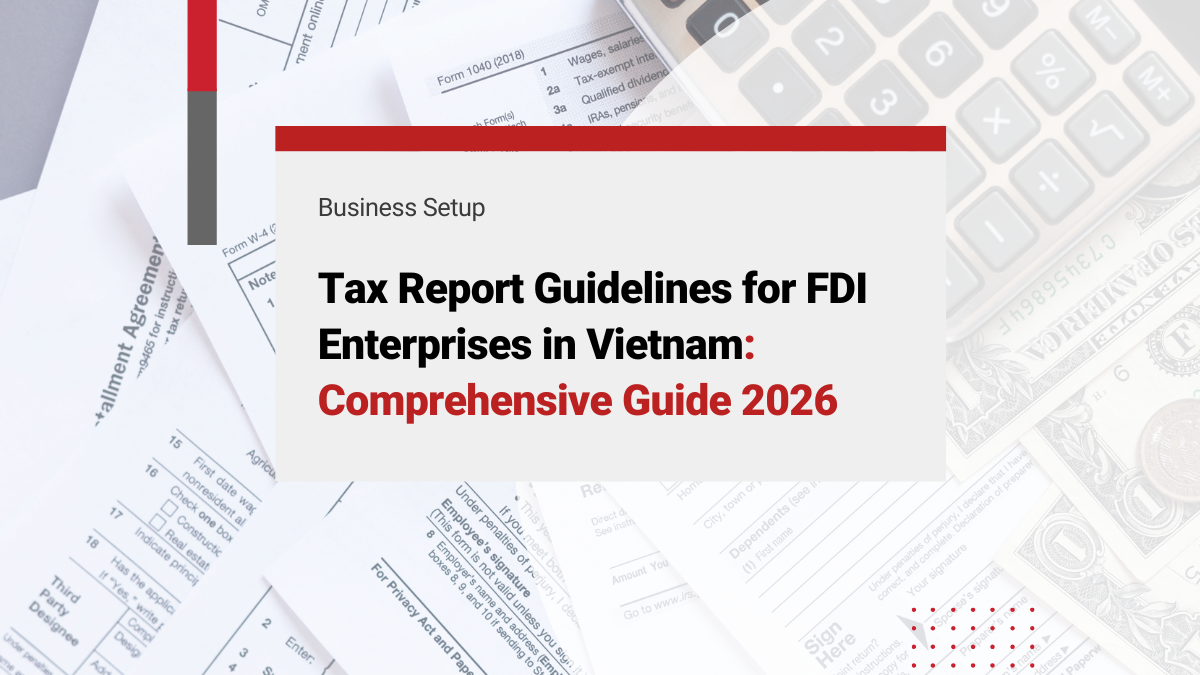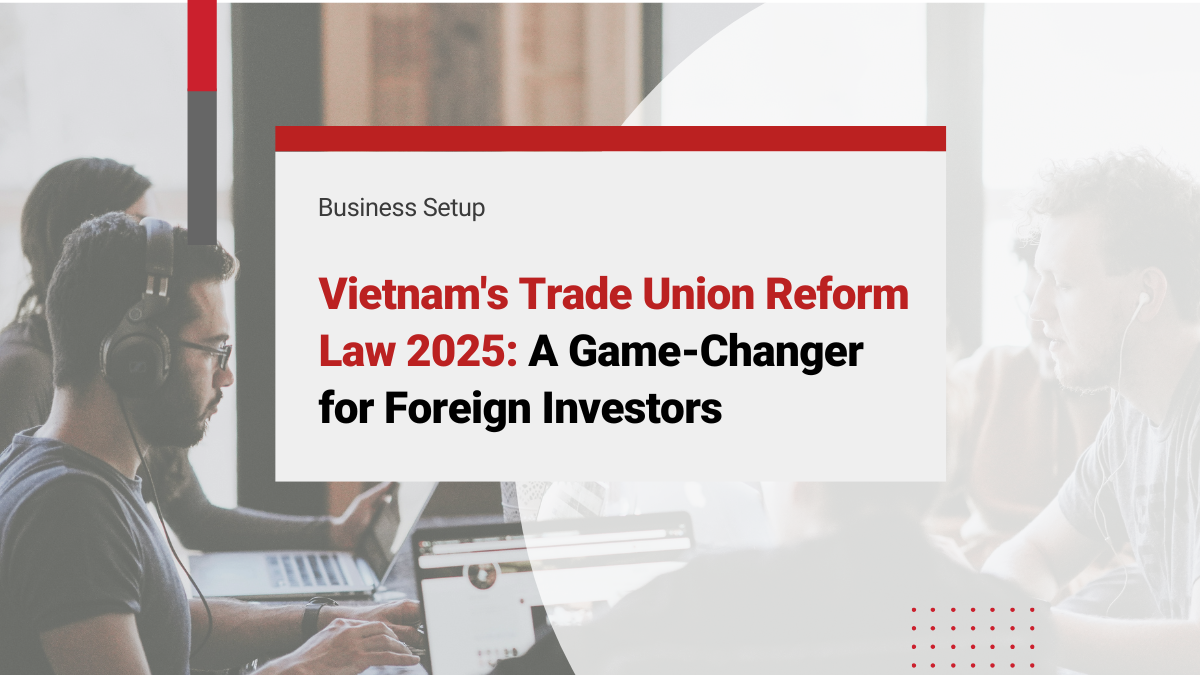Vietnam’s pharmaceutical market continues to be a key contributor to its economic expansion, experiencing an average annual growth rate of 10% as of 2024. Increased demand for imported drugs has reshaped regulations on drug distribution and advertising, presenting lucrative opportunities for foreign investors.
With a growing population and government efforts to modernize healthcare, Vietnam Pharmaceutical Companies are positioned for significant growth, making the sector highly attractive to potential suppliers and manufacturers. This article offers valuable insights for investors looking to enter or expand in Vietnam’s thriving pharmaceutical industry.
Establishing a Vietnam Pharmaceutical Company? Check out InCorp Vietnam’s Company Setup Services to navigate this thriving industry with expert guidance
Vietnam’s Pharmaceutical Market Overview
Vietnam’s pharmaceutical industry is undergoing rapid and sustained growth, with the market projected to reach USD 10 billion by 2026, driven by increasing domestic demand, supportive government policies, and rising healthcare spending. The market has expanded significantly from USD 2.7 billion in 2015 to USD 7 billion in 2025, reflecting strong investor confidence and consumer need.
Capitalizing on favorable trade policies and a growing population, Vietnam is positioning itself as a regional hub for pharmaceutical manufacturing and research. The country is now home to over 238 WHO-GMP-certified drug manufacturing facilities, 17 EU-GMP-certified plants, and a vast distribution network with more than 5,000 pharmaceutical wholesalers and 62,000 retail outlets. In 2024, pharmaceutical imports totaled nearly USD 4.4 billion, a 27.9% increase from the previous year. Key suppliers include France, the U.S., Germany, and India, highlighting Vietnam’s strong integration with global pharmaceutical trade.
Besides that, the EU-Vietnam Free Trade Agreement (EVFTA) continues to create advantages for European manufacturers, with 51% of EU pharmaceutical products now tariff-free. This provides easier access to Vietnam’s healthcare sector, especially its public hospitals, which account for 65% of total industry revenue.
Vietnam’s production capacity is also scaling up, with around 250 pharmaceutical plants, 200 import-export businesses, and thousands of wholesale and retail agents. Manufacturing clusters are concentrated around Hanoi, Hai Duong, Ho Chi Minh City, and key provinces like Can Tho and Dong Thap, creating regional hubs of pharmaceutical activity.
To meet growing demand and improve global competitiveness, major domestic firms such as Hau Giang Pharmaceutical, Bidiphar, Imexpharm, and Pymepharco are investing heavily in modernizing their production facilities and developing new product lines.
A notable highlight is Hai Duong Province’s partnership with Indian investors to develop a large-scale pharmaceutical park valued between USD 10–12 billion. Spanning over 900 hectares across Binh Giang and Thanh Mien districts, the project is set to become one of Vietnam’s largest pharma-focused developments. For Hai Duong, it marks a leap forward in attracting international and high-tech investment. For Vietnam, it signals the country’s growing prominence in the global pharmaceutical landscape and its readiness for the next phase of industry transformation.
Read Related: Understand Medical Equipment Registration in Vietnam
Consumer Trends
Vietnam presents a highly attractive pharmaceutical market, underpinned by its large population base of over 100 million people and a steadily increasing life expectancy of 76 years. Importantly, a growing segment, nearly 30% of the population or roughly 30 million people, equivalent to the size of Australia, can now afford higher-priced, Western medicines. In addition, Vietnam’s geographic proximity to other emerging Southeast Asian markets such as Thailand, Malaysia, Cambodia, Laos, and Singapore, representing a collective market size of 280 million consumers, further enhances its strategic position for regional pharmaceutical expansion.
Several long-term structural trends are driving demand in Vietnam’s pharmaceutical market. First is the country’s aging population. According to the General Statistics Office (GSO), the number of people aged 65 and above reached 14.2 million in 2024, accounting for 9.3% of the population. This is expected to grow to 18.1% by 2049, signaling an increased need for chronic care treatments, preventive healthcare, and specialized medical services for the elderly.
Second is urbanization. Vietnam’s urbanization rate is projected to surpass 50% by 2030 and reach 70% by 2050, with 1,000–1,200 urban centers planned nationwide. At least five internationally recognized cities are expected to emerge, serving as regional hubs for healthcare, education, and innovation. While urban development enhances healthcare access, it also brings public health challenges, including pollution-related illnesses, driving further demand for medical and pharmaceutical solutions.
A third and equally important trend is consumer behavior. A study by the EU-Vietnam Business Network (EVBN) found that 80% of Vietnamese consumers purchase medicine from private pharmacies and often self-medicate, typically based on advice from friends or family. In this informal and highly price-sensitive market, brand recognition and trust play a critical role in purchasing decisions. The prevalence of counterfeit or non-original drugs has made consumers more inclined to choose familiar, reputable brands. For pharmaceutical companies, this presents both a challenge and an opportunity—to build brand loyalty, educate consumers, and position products for long-term credibility in a market where word-of-mouth is still a powerful influence.
Read Relevant: Healthcare Industry in Vietnam: Market Trends, Hospital Investments, and System Dynamics
Key Rules and Regulations
The 2024 amendments to Vietnam’s Law on Pharmacy mark a pivotal shift in the country’s regulatory framework, aimed at improving efficiency, expanding market access, and fostering greater transparency across the pharmaceutical sector. These changes present significant opportunities for both local and foreign investors looking to navigate Vietnam’s fast-growing healthcare market:
- Legalization of e-commerce sales: Non-prescription drugs can now be sold via online platforms, expanding access while maintaining restrictions on controlled substances.
- Greater market access for FIEs: Foreign-invested enterprises (FIEs) gain new rights to repurchase and distribute locally manufactured drugs, import raw materials, and transport clinical trial drugs.
- Faster and simpler drug registration: Reference-based approvals are shortened to 9 months; renewal applications require fewer documents; expired marketing authorization remain valid during renewal processing.
- Clinical trial drug imports simplified: Non-marketed drugs (except controlled substances) can be imported for clinical trials without requiring an import license, with the Ministry of Health (MOH) oversight.
- Stronger price transparency measures: Drug manufacturers and importers must declare wholesale prices before market entry, with MOH publishing the information online for public access.
- Smooth transition for businesses: Pending applications before July 1, 2025, follow the 2016 law unless applicants opt for the 2024 amendments, ensuring regulatory continuity.
Market Challenges
While Vietnam offers strong growth potential for pharmaceutical businesses, foreign-invested enterprises (FIEs) still face several regulatory and operational barriers that can impact market competitiveness and return on investment.
A major limitation is the restriction on direct distribution. Foreign pharmaceutical companies and FDI logistics firms are not allowed to distribute pharmaceutical products directly to end users. Instead, they must sell through licensed domestic pharmaceutical distributors. Unfortunately, Vietnam’s distribution network remains highly fragmented and lacks transparency, which contributes to pricing inefficiencies. In hospital procurement, for example, drug prices can be inflated by 130–245% over base procurement costs once logistics and intermediary markups are added.
Another ongoing challenge is the lengthy regulatory approval process for new medicines. The Drug Administration of Vietnam (DAV), under the Ministry of Health, is solely responsible for evaluating market authorizations, GMP compliance, and licensing. This centralized structure often results in extended wait times—initial reviews may take up to 12 months, stability data assessments an additional year, and clinical trials can stretch over three years. These prolonged timelines can hinder a company’s ability to align with approval schedules in larger markets such as the U.S. or EU, affecting speed to market and delaying ROI for new product launches.
Marketing and advertising regulations also pose constraints. While over-the-counter (OTC) drugs can be promoted publicly, advertising prescription drugs remains prohibited. This limitation can reduce consumer awareness and hinder product visibility, especially in markets where patients often seek treatment guidance through informal or self-medication channels.
Collectively, these challenges highlight the importance of working with trusted local partners, leveraging expert regulatory support, and developing tailored market-entry strategies to navigate Vietnam’s complex but promising pharmaceutical landscape.
Market Entry Strategies for Vietnam Pharmaceutical Companies
Despite regulatory barriers, one of the most effective ways for foreign pharmaceutical producers to enter Vietnam’s market is through partnerships with local firms. Collaborating with local distributors can help overcome advertising restrictions and enhance brand awareness.
Market entry options include joint ventures, mergers and acquisitions (M&A), and direct investment as drug importers. M&A, in particular, is a strong option for foreign investors looking to enter Vietnam’s pharmaceutical industry. With Vietnam still reliant on imports for many drugs and raw materials, these strategies open doors for foreign firms to integrate into supply chains.
Read More: Setting up a Joint Venture in Vietnam: Exploring Joint Venture Company Opportunities

clients worldwide

professional staff

incorporated entities in 10 years

compliance transactions yearly
Learn the Right Setup for Business
Expansion in the Vietnam
Frequently Asked Questions
Do you need a prescription for drugs in Vietnam?
- Yes, many medications in Vietnam require a prescription, especially antibiotics, psychotropics, and controlled substances. However, some over-the-counter (OTC) drugs like pain relievers and cold medicines can be purchased without a prescription. Enforcement of prescription requirements may vary between urban and rural pharmacies.
What is the largest pharmaceutical company in Vietnam?
- As of recent years, DHG Pharmaceutical Joint Stock Company (DHG Pharma) is considered the largest pharmaceutical company in Vietnam by market share and revenue. Headquartered in Can Tho, DHG Pharma specializes in the manufacturing and distribution of generic drugs and over-the-counter products, and has been a market leader in Vietnam’s pharmaceutical industry.
What is the largest pharmacy chain in Vietnam?
- The largest pharmacy chain in Vietnam is Pharmacity. Founded in 2011, it operates over 1,100 stores nationwide as of 2023, making it the leading player in Vietnam’s retail pharmacy market by store count and market presence.






